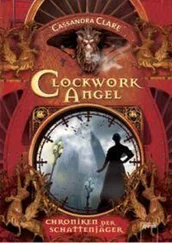We talk all night. She teaches me what she has learned about nakalchis and Cognizant-Cities, Corporate Entities and mother-machines—in particular, their rituals of death, because that is what interests me. I realize during the conversation that I am no more than a vessel for the death of another, and that is perhaps why I seek my own. Some time during the night she teaches me the song with which nakalchis welcome Nothen, their conception of death. She learned it from a nakalchi priest who was dying, who wanted someone to say the words to him. I cannot pretend to understand the lore and mysticism that the priests have developed around Nothen, which to me is simply irreversible non-functionality, the death that comes to us all. Or the philosophical comparison between Nothen and Shunyath. Dhanu tries to explain:
“If you go into Shunyath, you contemplate what nakalchis call The River, which is inadequately translated as the Cosmic Stream of Being. If you go into Nothen, with the Last Song echoing in your mind, then you are the River. You are no longer separate from it—you become the River, see?”
No, I don’t see. Never mind, she says, laughing at me. She says the words of the Last Song, breathing it out into the moonlit air.
It has a pleasing, sonorous lilt. It is supposed to induce a state of acceptance and peace in a dying nakalchi. I am not sure why, but there are tears in my eyes as I repeat it after her in the gray, hushed light of dawn.
Shantih. Nothen ke aagaman, na dukh na dard…
Lying with her, seeing her hair unbound on my pillow like seaweed, I find myself in a still place, as though between breaths. Hirasor does not walk the paths that Dhanu and I tread.
* * *
Looking back, I see how the paths branch out of each temporal nexus. For every pivotal event in my life, there was always more than one possible path I could have taken.
This is the path I chose:
I had accompanied Dhanu during one of her urbanology expeditions. We were in the bowels of a dying Cognizant-City on the ruined planet Murra. This was the first time she had had a chance to explore what was probably one of the earliest Cognizant-Cities in the galaxy. She was a few levels below me, attempting to salvage what was left of the City’s mind. All its recorded history and culture, its ruminations over the years of its existence, lay spooled in cavernous darkness below. The inhabitants had been evacuated, and even now I could see the last of the ships, a glint or two in a reddening sky over the bleak mountains of Murra’s northern continent. I was perched on the highest ramparts, standing by our flyer and looking out for rogue destroyer bots. Every now and then I saw one rise up, a distant speck, and crash into the city-scape in a small fireball. Thin spires of smoke rose all around me, but there was as yet nothing amiss where I was waiting.
Then I lost Dhanu’s signal.
I searched the skies, found them clear of bots, and descended quickly into the warren-like passageways that led into the city’s heart. Two levels later, my wrist-band beeped. She was in range.
“I’m all right, Vikram,” she said to my anxious query. She sounded breathless with excitement. “I had to go down a couple of levels to find the rest of the data-banks. This City is one of the first Cognizant-cities ever made! They still have direct human-to-City interfaces! I am hooking up to talk to it as I record. Go on up! I’ll only be a few minutes, I promise.”
When I relive that moment, I think of the things I could have done. I could have insisted on going down to where she was, or persuaded her to leave everything and come. Or I could have been more careful going up, so I wouldn’t lose my way.
But I did lose my way. It was only one wrong turn, and I was about to retrace my steps (I had the flyer’s reassuring signal on my wristband as a guide) but what made me pause was curiosity. Or fate.
I found myself in the doorway of an enormous chamber which smelled faintly of blood and hydrogen peroxide, and was lit by periodic blue flashes, like lightning. I saw the great, monstrous hulk of an old-fashioned mother-machine, her long-abandoned teats spewing an oily broth, her flailing arms beating the air over the shattered remains of her multiple wombs. She was old—it had been a long time since she had brought any nakalchis to life. As I stared at her I realized (from what pictures Dhanu had shown me of ancient made-beings) that she was probably a first-generation mother-machine. A priceless collector’s item, salvaged from who-knew-where, abandoned in the evacuation of the City. And now the City’s madness was destroying what little functionality she had, taking her to Nothen. Moved by a sudden impulse I went up to her and spoke the words of peace.
Shantih. Nothen ke aagaman, na dukh na dard…
Peace. As Nothen comes, there is no sorrow, no pain…
I regretted my impulse almost immediately because after I stopped, the mother-machine began to recite the names of her children, the first part of her death-ritual. In her final moments she had mistaken me for a nakalchi priest. I don’t know what made me stay—there was something mesmerizing about that old, metallic voice in the darkness, and the proximity of death. Perhaps I was a little annoyed with Dhanu for delaying, for wanting to join with the City in an orgy of mutual understanding. Dhanu’s signal flickered with reassuring regularity on my wristband.
Then I heard the mother-machine utter the name that to me meant more than life itself: Hirasor.
I will remember that moment until I die: the grating voice of the mother-machine, the dull booms in the distance, the floor shaking below my feet, and that pungent, smoky darkness, pierced by occasional sparks of blue lightning.
In the midst of it, clear as a bell, the name—or rather, Hirasor’s unique numerical identifier. Each of us had our identity numbers, given to us at birth, and I was one of the few people who knew Hirasor’s. But I had never suspected he was a nakalchi. Partly because of nakalchi lore and history—there never had been any confirmed master criminals who were nakalchi, conceived as they had once been to gently shepherd the human race toward the stars. Meanwhile the great uprising of the nakalchis in times long before Samarin, the consciousness debates that had preceded them, had all ensured that they were treated on par with human beings, so I had no way of knowing from the number alone. You can’t tell from appearance or behavior either, because nakalchis claim access to the full range of human emotion (or, if their priests are to be believed, to more than that). By now even we humans are so augmented and enhanced that the functional difference between nakalchi and human is very small—but important. To me the difference meant—at last—the possibility of vengeance.
Hirasor: a first-generation nakalchi!
That is why I had to wait. That is why I couldn’t go down to find Dhanu, why I ignored her frantic signals on my wrist-band. I had to wait for the mother-machine to tell me her name.
At last she said it: Ekadri-samayada-janini, intermingled with a sequence of numbers that made up a prime.
I left her then, to die. I left, repeating her name—what would always be, to me, the Word—so I would not forget. The floor was twisting and bucking beneath my feet, and a lone siren was blaring somewhere above me. I staggered against the rusting metal wall of the passage, and remembered Dhanu.
I got up. I went back. I wish I could say that I went into the bowels of the City, braved everything to find her and rescue her. But I didn’t. I went down until I was stopped by the rubble of fallen masonry. Her signal still flickered on my wrist-band but she did not answer my query.
Читать дальше












